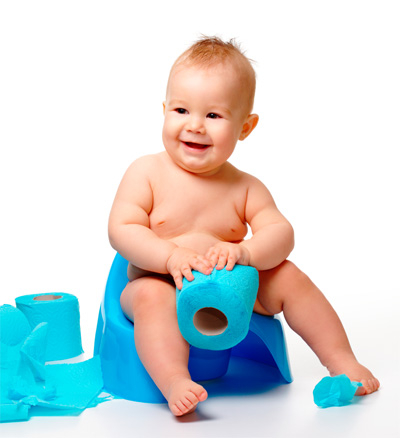Preparing your baby for toilet training
Early preparation
Potty training is especially difficult if the child does not know what toilet training is. There are many reasons why moms and dads might want to toilet train at a young age including financial or hygienic, but be warned. Training when your baby is ready and is showing signs of readiness will make your toilet training journey shorter and easier.

Many parents may not even realise that their baby is learning about toilet training before they’ve even thought about putting them on a potty. This is happening just from watching you, while you go about your business!
Early preparation for toilet training is something that every parent should think about when it comes to their baby, as this can be a steppingstone to toilet training success.
Introduce your baby to toilet training
Babies are like sponges; they take in everything from their surroundings. Introducing them to toilet training concepts early will help later on.
Just like learning to swim, a similar process applies to toilet training. Before you rush out and buy a potty, think about preparing your baby for toilet training with the following tips.
Five early preparation tips
1. Introduce
Introduce your baby to the environment, even if it means merely sitting them down near you while you go. Even on the toilet you will be a role model for them, getting them ultimately used to the fact that sitting on the toilet is normal.
Just make sure the bathroom floor and areas in contact with your baby are always clean, and don’t be offended if they pull up their noses or shout “yucky” as they empty the toilet roll onto the floor.
2. Encourage learning
If your baby does not follow you to the toilet or you don’t let them in while you are on the loo, think about letting them in and try to make sure they see you doing the following on a regular basis:
- Sitting down
- Pulling down your pants or skirt
- Reaching for the toilet paper or flushable wipes
- Pulling up your pants or skirt
- Flushing the toilet
- Washing your hands
If they have, then this learning experience has probably already started. Consider it a developmental process that has been going on inside your baby for a while, without you possibly being aware.
3. Every little thing you do is magic
You may not know it, but the noises, feelings and what your baby sees are all contributing to their understanding of going to the toilet. These experiences will help when your baby becomes a toddler ready for toilet training.
If they don’t seem interested in what you are doing, think about engaging them in other ways by:
- Talking or making noises, telling them you are on the toilet.
- Handing them some toilet paper, scrunching it up or wrapping it around their finders.
- Washing their hands with soap after you have washed yours.
- Holding them up and letting them flush the toilet.
4. Don’t expect a response
Babies love to explore just about anything and everything. They are so new to the world that sometimes they can be overwhelmed with what they see, hear and feel. As a result, this early preparation and learning may take some time to sink in and even some more time before you see any real response.
5. Be patient
Most importantly though, don’t be discouraged if your baby doesn’t respond to your actions on the toilet. This is about introducing them to toileting, letting them see you or their siblings using the toilet, and helping them gain an understanding that this is normal and something they will do when they are a “big kid”.
By following these 5 early preparation toilet training tips, you will be introducing your baby to using the toilet. So when the time comes to toilet train, you have reinforced the idea of using the toilet as normal and part of growing up.

